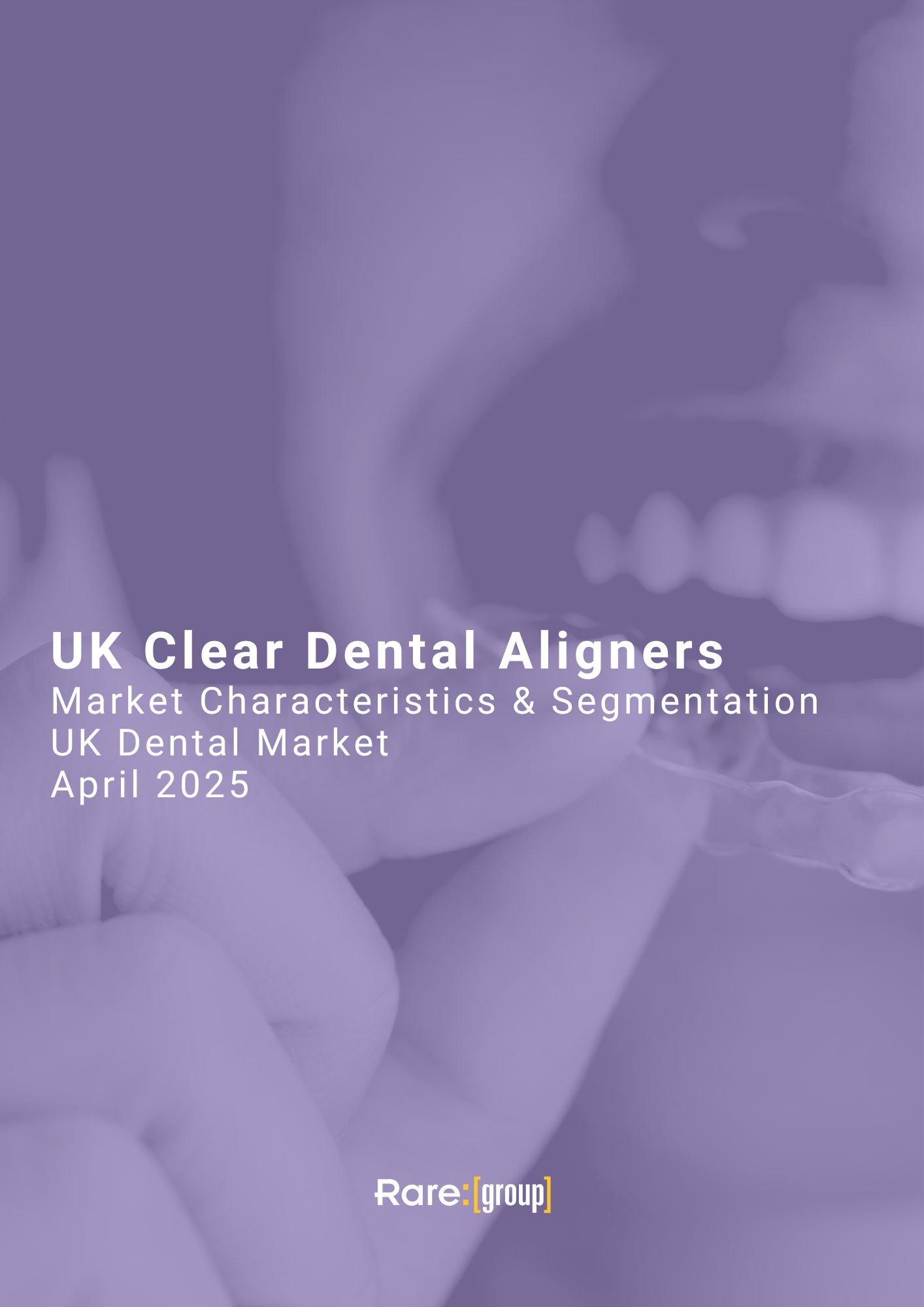Who are the clinics offering Clear Aligners in the UK Orthodontic Market?
In our recent report on UK Clear Dental Aligner Segmentation, we break down the clear aligner market within the UK Orthodontic industry. The results from the analysis show that clear aligner treatment has moved from niche to near-mainstream, now offered by nearly two-thirds of all private dental providers.
We first explored the rise of clear aligners in our February blog, where we highlighted how brands like Invisalign have become some of the most talked-about names in the UK private healthcare market — not just in dentistry, but across the sector. This momentum is reshaping the landscape, attracting both large-scale providers and independent cosmetic-led clinics.
But with rapid growth comes complexity. Not all dental clinics are alike — and when it comes to clear aligner treatment, Rare: Monitor reveals four distinct types of providers are leading the charge. Whether you're a brand, manufacturer or distributor, understanding these provider segments is critical for shaping a campaign that lands.
Why Segmentation Matters
Market segmentation isn’t just an academic exercise. For commercial teams, it’s a practical tool.
By knowing who you’re targeting, and what defines them you can:
Plan smarter campaigns tailored to provider behaviours, scale, and focus.
Prioritise sales territories based on provider density and market concentration.
Position your brand effectively, using the language and benefits that matter to each segment.
Identify whitespace where your product is underrepresented or where competitors are gaining traction.
With this in mind, here’s how the UK clear aligner market breaks down by provider type:
1. Full-Service Dentists (37%)
The largest and most commercially mature group, typically large multi-site or chain clinics offering comprehensive services including cosmetic, prosthodontics, and orthodontic care.
54% operate 10+ locations
87% offer aesthetic treatments
36% are based in high-income areas
4% have turnover exceeding £36M
These providers often sit at the centre of commercial opportunities for manufacturers due to their scale, breadth of service, and appetite for multi-treatment solutions.
2. General Dentists / Prosthodontists (26%)
This segment leans towards traditional dentistry — often focusing on full dentures and core oral health services — and includes a high proportion of independents.
68% operate from a single location
50% offer aesthetic treatments
46% are based in high-income areas
Average of 6.4 treatments offered
For suppliers looking to convert traditional practices into aligner providers, this group represents a growth opportunity — with a need for clear value propositions and education-led messaging.
The types of dental practices currently offering clear aligners in the UK Orthodontic Market (Rare:)
3. Cosmetic-Focused Dentists (19%)
Aesthetic-led, often independent clinics specialising in smile makeovers and cosmetic bonding.
64% operate a single location
61% offer aesthetics
42% are in high-income areas
21% are located in London
This group is highly brand-sensitive and competitive, making it ideal for premium, consumer-facing product lines.
4. Cosmetic & Prosthetic Dentists (18%)
A hybrid segment blending aesthetic dentistry with prosthodontic treatments — often run by experienced clinicians operating small-to-medium group practices.
68% offer aesthetics
30% report turnover over £36M
Average of 10.9 locations
Highly urban, high-income focus
These practices tend to lean into treatment innovation, making them strong early adopters for new clear aligner technologies or adjunctive services.
Each segment plays a distinct role in shaping the future of the UK clear aligner market, from scale-led national providers to brand-forward boutique clinics. Understanding the makeup and mindset of each allows manufacturers and distributors to tailor their approach and maximise commercial impact.
Download related reports from Rare:



